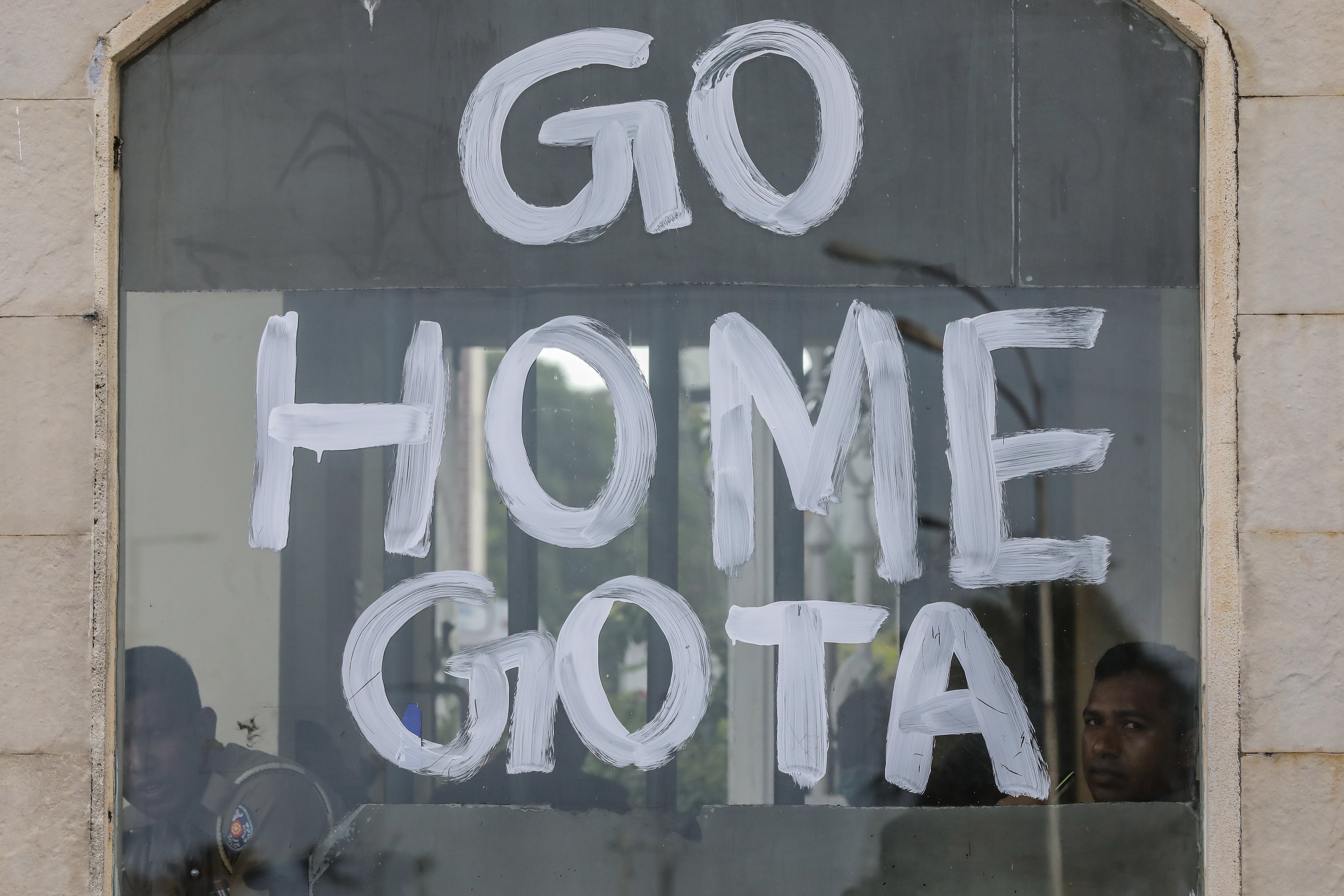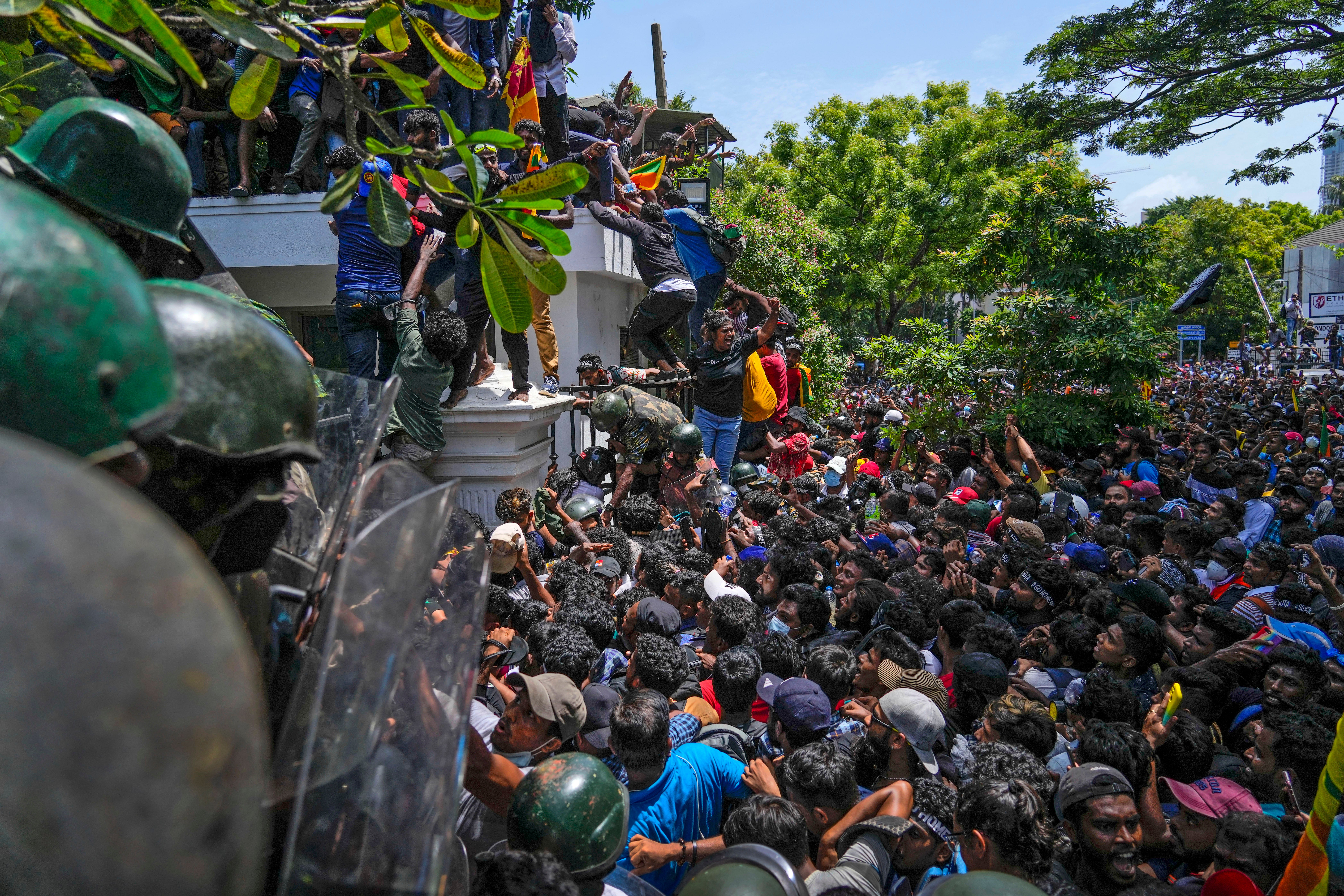Self-exiled former Sri Lankan president claims in resignation letter he ‘took all steps’ to avert crisis
Gotabaya Rajapaksa, who left Sri Lanka before resigning, blames Covid and previous governments for the economic crisis
Your support helps us to tell the story
From reproductive rights to climate change to Big Tech, The Independent is on the ground when the story is developing. Whether it's investigating the financials of Elon Musk's pro-Trump PAC or producing our latest documentary, 'The A Word', which shines a light on the American women fighting for reproductive rights, we know how important it is to parse out the facts from the messaging.
At such a critical moment in US history, we need reporters on the ground. Your donation allows us to keep sending journalists to speak to both sides of the story.
The Independent is trusted by Americans across the entire political spectrum. And unlike many other quality news outlets, we choose not to lock Americans out of our reporting and analysis with paywalls. We believe quality journalism should be available to everyone, paid for by those who can afford it.
Your support makes all the difference.Sri Lanka’s self-exiled former president Gotabaya Rajapaksa claimed he took “all possible steps” to prevent the worst economic crisis that the country has witnessed since independence.
Mr Rajapaksa fled the cash-strapped country after an anti-government uprising that saw the presidential palace taken over by protesters.
The contents of Mr Rajapaksa’s resignation letter – accepted on Friday but not made public until now – were read out during Saturday’s parliamentary session, in which members commenced the process to elect a new president.
Secretary general Dhammika Dasanayake read out the letter.
“It is my personal belief that I took all possible steps to address this crisis, including inviting parliamentarians to form an all-party or unity government,” the former president said.
He blamed the financial crisis on years of economic mismanagement that pre-dated his presidency, and said the Covid pandemic had drastically reduced tourist arrivals and remittances from foreign workers.

Mr Rajapaksa, who was elected with a thumping majority in 2019, cited the emergence of Covid within three months of his presidency and claimed he was “constrained” by bad economic management.
“I took action to protect people from the pandemic despite being constrained by the already poor economic environment that prevailed at the time,” he said. “During 2020 and 2021, I was compelled to order lockdowns and the foreign exchange situation deteriorated. I decided to resign as you indicated to me on 9 July the wish of the party leaders.”
As protesters raised their “Go Home Gota” pitch against the president and stormed his official residence in Colombo, Mr Rajapaksa abandoned his plan to resign on Wednesday and instead left for the Maldives.
He then landed in Singapore for a “private visit” and emailed his resignation to the parliamentary speaker on Thursday.
His resignation ended a nearly 20-year rule by the Rajapaksa family.

Six-time prime minister Ranil Wickremesinghe has been sworn in as acting president until the country’s parliament votes to elect a new president on 20 July.
Earlier on Friday, Mr Wickremesinghe said in a televised statement that he would initiate steps to change the constitution in order to curb presidential powers and strengthen parliament, restore law and order, and take legal action against “insurgents”.
He had offered to step down from the prime minister’s post after demonstrators occupied his office and set fire to his private home.
Meanwhile, the opposition party, Samagi Jana Balawegaya, has named its leader Sajith Premadasa as the party’s presidential nominee. “... 225 voters in parliament will decide the destiny of approx 22 million Sri Lankans. Game on,” Mr Premadasa tweeted on Saturday.
In an interview, Mr Premadasa said that if he wins, he will ensure that “an elective dictatorship never, ever occurs” in Sri Lanka.
Ruling party lawmaker and former journalist Dullas Alahapperuma has been dubbed the “dark horse” in the presidential race.
The debt-ridden island nation received the first of three fuel shipments on Saturday amid a crippling fuel crisis that has forced the government to shut schools and ask employees to work from home. Serpentine queues could be seen at fuel stations, with people waiting for days to get petrol and diesel.
Saturday’s shipment is the first to reach the country in about three weeks. A second diesel consignment will also arrive on Saturday, with another petrol shipment due by Tuesday, energy minister Kanchana Wijesekera said.
Colombo is currently in negotiations with the International Monetary Fund over a £3bn bailout package.

Join our commenting forum
Join thought-provoking conversations, follow other Independent readers and see their replies
Comments